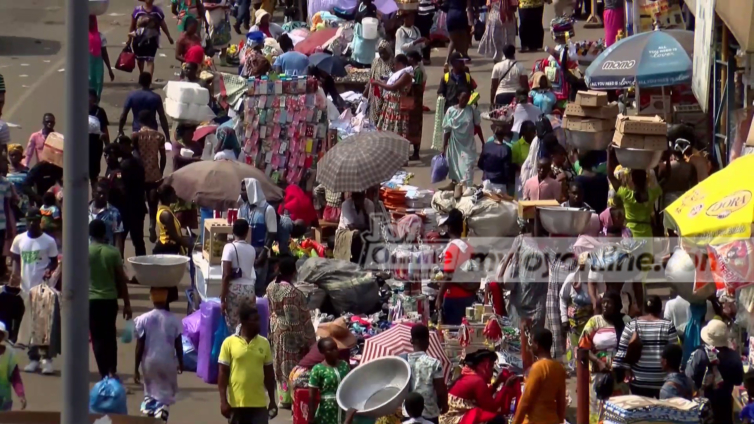Despite universal agreement on the responsibility to protect populations from atrocities, the concept is now “evolving into a rather complex and unpredictable situation”, a former UN Under Secretary-General and Special Adviser on the Prevention of Genocide, Adama Dieng, has said.
This, he argued, was as a result of changing “conflict dynamics and dimensions”.
“Today, states are no longer an exclusive source of authority and political power,” said Mr Dieng, who is currently President of the Pan African Alliance for Transparency and the Rule of Law.
“Armed groups are increasingly capable of unleashing brutal violence on a scale before unimaginable.
“Today we are seeing conflicts in remotest parts of the world being influenced and supplied with weapons from far away actors.
“Reality is, the UN must evolve and adapt to these new developments.”
He emphasised:“The United Nations must send an unmistakable message to all parties involved in conflicts that violence of any kind as a tool to resolve differences is unacceptable.
“Those who instigate, support or indeed bankroll violence will be punished.”
Mr Dieng, who is also a Special Adviser to the Prosecutor of the International Criminal Court, was addressing students and faculty this week at Oxford Martin School, University of Oxford.
Focusing on the challenges and opportunities facing the prevention of genocide in the 21st century, Mr Dieng said: “It is regrettable that state representatives often interpret meetings with especially the Special Adviser on the Prevention of Genocide as suggesting that genocide is present or imminent in their countries, which results in defensive behaviour.
“This scepticism is also reflected in what is perhaps the most significant challenge facing the work of both the Special Adviser on the Prevention of Genocide and the Special Adviser on the Responsibility to Protect.
“I am referring here to the resistance from within the UN system.
“Those parts of the UN system whose mandate relates to mediation and peace-making, for example, do not appreciate the possible negative impact that mention of atrocity crimes may have on the peace process,” Mr Dieng added.
Touching on the “tragedies unfolding before our very eyes”, Mr Dieng said: “The obvious question that stands out is how prepared are we to respond to events such as those in Sudan? “Clearly, Sudan, represents a litmus test for the international community; but most importantly for the Security Council and indeed the African Union.”
He said since the beginning of the fighting in Sudan, the Security Council “has failed to speak with one unequivocal voice against the actions of both parties to the conflict, but more crucial, to take decisive steps to protect civilians who continue to face the brutal nature of this senseless conflict”.
“The Council must provide moral and political leadership to stop ongoing violence in the country.
“This is because within the ambit of the current Charter, it is only the Security Council which wields ultimate power and indeed political duty and moral responsibility to address challenges with international peace and security dimension,” Mr Dieng added.
“As such, the message coming from the Council, more than anything else, will continue to determine the extent to which we can save and protect lives of vulnerable populations at risk of genocide.”
Mr Dieng said he believed there was “adequate international legal framework to address events such as those unfolding in Sudan, and elsewhere”.
“What is urgently required, but which is critically lacking, is the political courage and leadership of the Security Council to overcome divisions in its ranks to fulfil is role and perform its duty as enshrined in the Charter,” Mr Dieng added.
Latest Stories
-
Real Madrid beat Sevilla to keep pressure on leaders Atletico
19 minutes -
Liverpool put six past Spurs to go four points clear
21 minutes -
Manchester United lose 3-0 at home to Bournemouth yet again
25 minutes -
CHAN 2024Q: ‘It’s still an open game’ – Didi on Ghana’s draw with Nigeria
33 minutes -
CHAN 2024Q: Ghana’s Black Galaxies held by Nigeria in first-leg tie
2 hours -
Dr Nduom hopeful defunct GN bank will be restored under Mahama administration
2 hours -
Bridget Bonnie celebrates NDC Victory, champions hope for women and youth
2 hours -
Shamima Muslim urges youth to lead Ghana’s renewal at 18Plus4NDC anniversary
3 hours -
Akufo-Addo condemns post-election violence, blames NDC
3 hours -
DAMC, Free Food Company, to distribute 10,000 packs of food to street kids
5 hours -
Kwame Boafo Akuffo: Court ruling on re-collation flawed
5 hours -
Samuel Yaw Adusei: The strategist behind NDC’s electoral security in Ashanti region
5 hours -
I’m confident posterity will judge my performance well – Akufo-Addo
5 hours -
Syria’s minorities seek security as country charts new future
6 hours -
Prof. Nana Aba Appiah Amfo re-appointed as Vice-Chancellor of the University of Ghana
6 hours

